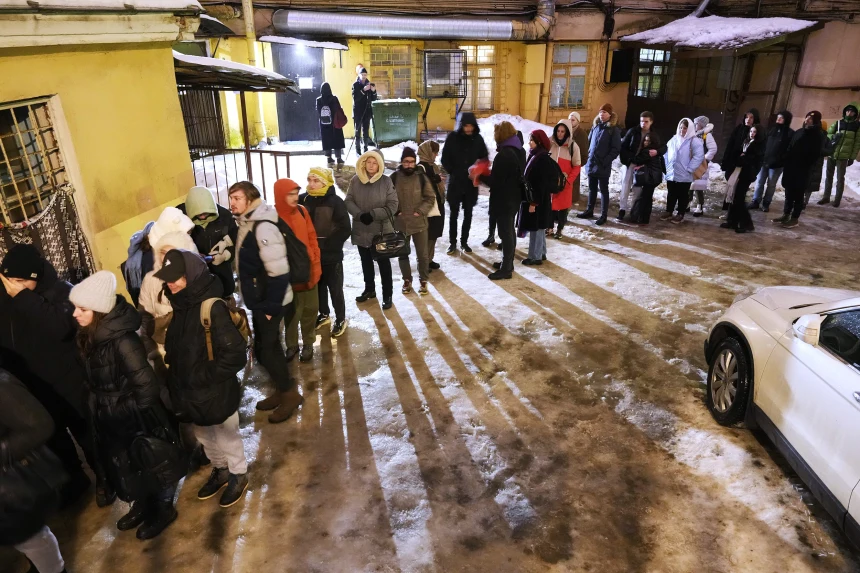Russian authorities have blocked the sole anti-war presidential candidate from challenging Vladimir Putin in the upcoming election, thwarting the unexpected rise of Boris Nadezhdin, who had garnered significant support by tapping into growing discontent. Nadezhdin, a seasoned politician, labeled Putin’s actions in Ukraine as a “fatal mistake,” a rare dissenting opinion in a country where outspoken critics face imprisonment, exile, or worse.
Despite widespread public backing and a surge in signatures collected in support of his candidacy, Nadezhdin was disqualified as authorities claimed irregularities in the verification of the signatures. In response, he announced his intention to appeal the decision to the country’s supreme court.
The Kremlin’s move to sideline Nadezhdin underscores its reluctance to risk his inclusion on the ballot, even at the potential cost of further diminishing the election’s legitimacy. Nadezhdin, a self-proclaimed Russian patriot advocating for improved relations with the West, had addressed critical issues such as the conflict in Ukraine, and infrastructure problems, and aligned himself with the concerns of soldiers’ wives.
As the 60-year-old Nadezhdin initiated his campaign, speculation arose regarding whether he was a Kremlin-sanctioned candidate meant to provide a semblance of legitimacy to the election. The question lingered about whether he would be permitted to criticize the government without the Kremlin’s approval.

Nadezhdin has achieved a rare feat in Russian politics by garnering support from various prominent opposition figures, overcoming longstanding internal conflicts among them. Even supporters of the incarcerated opposition leader Alexei Navalny rallied behind Nadezhdin, surprising the Kremlin, which seemed caught off guard by this unity and the apparent surge in public backing for him. Despite Kremlin spokesman Dmitry Peskov dismissing Nadezhdin as no rival to Putin, the unexpected support has challenged this assertion.
Also Read: Taiwan Widens Export Controls to Russia and Belarus
The unexpected wave of backing also seemed to catch Nadezhdin himself by surprise, as he attributed his popularity to the “demand for peace and changes” in Russia. In an interview with NBC News in December, he emphasized the lack of a genuine choice in the election and expressed his readiness for anything, highlighting his determination to challenge Putin’s perceived undermining of democratic institutions and steering towards greater authoritarianism.
Russian elections are frequently marred by irregularities and fraud claims, with challengers facing significant hurdles to get their names on the ballot. Critics often view Russia’s electoral process as a mere façade, with Putin considered almost certain to secure victory in March. To secure his candidacy, Nadezhdin had to gather 100,000 signatures from across Russia by the end of January, a challenging task for a candidate relying solely on crowdfunding.
The urgency of collecting signatures led to people both within Russia and abroad lining up outside Nadezhdin’s offices, viewing it as a peaceful and legal way to express support for an anti-war message amid a broader crackdown on dissent. Public displays of criticism against the war have resulted in detentions and arrests, making opposition to the conflict challenging without risking personal freedom. Despite the Kremlin’s insistence on overwhelming support for Putin’s stance on the war, Nadezhdin’s campaign underscored pockets of dissent seeking a legitimate outlet within a constrained political landscape.

